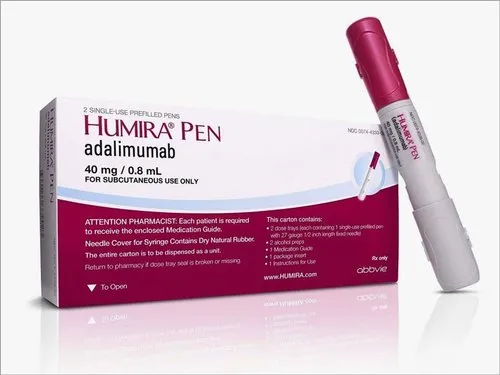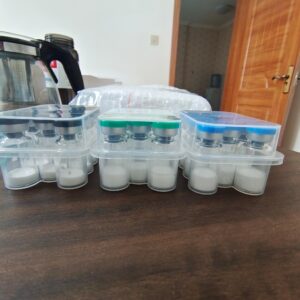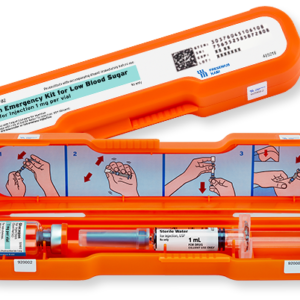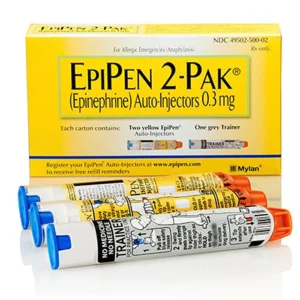Description
Humira is a brand-name medication that acts as a TNF blocker that lowers your immune system’s ability to fight infections. Humira is one of the most expensive medications in the United States. However, you can purchase it through Canada for substantially less.
By targeting and blocking a source of inflammation caused by moderate to severe Crohn’s disease, Humira can help many adults achieve and maintain remission.
Inflammation can be reduced by using Humira (adalimumab), which works as a tumor necrosis factor (TNF) blocker.
Among the conditions for which Humira is used are rheumatoid arthritis, psoriatic arthritis, ankylosing spondylitis, plaque psoriasis, and hidradenitis suppurativa, a skin condition.
The injection is administered by injection under the skin (similar functionality as Trulicity pens). You can distribute it yourself in the comfort of your own home, either by a Pen or a prefilled syringe.
Usage
Humira should be used according to your doctor’s instructions. Read all medication guides or instruction sheets and follow the directions on your prescription label. Follow the instructions precisely.
Injecting Humira under the skin is the procedure. A healthcare provider administers this medicine.
If your medicine comes with an instruction sheet, read and follow it carefully. Humira should not be used if you cannot understand its instructions.
If you have any inquiries or need more information, please do not hesitate to reach out to your healthcare professional.
Humira dosage schedules depend on the condition being treated and treated. Always follow the directions given by your doctor carefully.
If you are not ready to administer your injection, do not prepare it. If the medicine is cloudy, colored differently, or contains particles, it shouldn’t be used. Contact your pharmacist to get a new treatment.
Humira impacts immunity. You may become more prone to infections, including severe or fatal diseases. Regular medical care may be necessary.
The original carton of this medicine should be kept in the refrigerator. Avoid freezing. Follow all patient instructions regarding travel medicine storage carefully if you are traveling. Keep away from extremes of temperature. Any Humira that has frozen should be thrown away.
Put needles and syringes in a sharps container after using them only once. Dispose of it by local or state regulations. Avoid having children or pets around it.
Side Effects
If you experience severe side effects related to taking Humira, consult your doctor immediately. If you feel the symptoms are life-threatening, seek a medical emergency by calling 911.
Serious side effects experienced by patients taking Humira include heart failure, which has the symptoms of sudden weight gain, shortness of breath, swelling of feet and ankles.
Another severe side effect is Lupis-like syndrome which may have the symptoms of shortness of breath, joint pain, discomfort or pain in the chest, and rashes on arms and chest that worsen in the sun.
Nerve disorders or demyelinating diseases such as multiple sclerosis or seizures are also possible side effects. The symptoms include vision problems, dizziness, tingling or numbness, weakness in the arms or legs.
Blood disorders such as anemia should also be monitored. They have the symptoms of bleeding, bruising, the appearance of pale skin, and long-lasting fevers.
This medication has also been linked to liver damage. The symptoms of liver damage include stomach ache, loss of appetite, vomiting, and jaundice.





Reviews
There are no reviews yet.